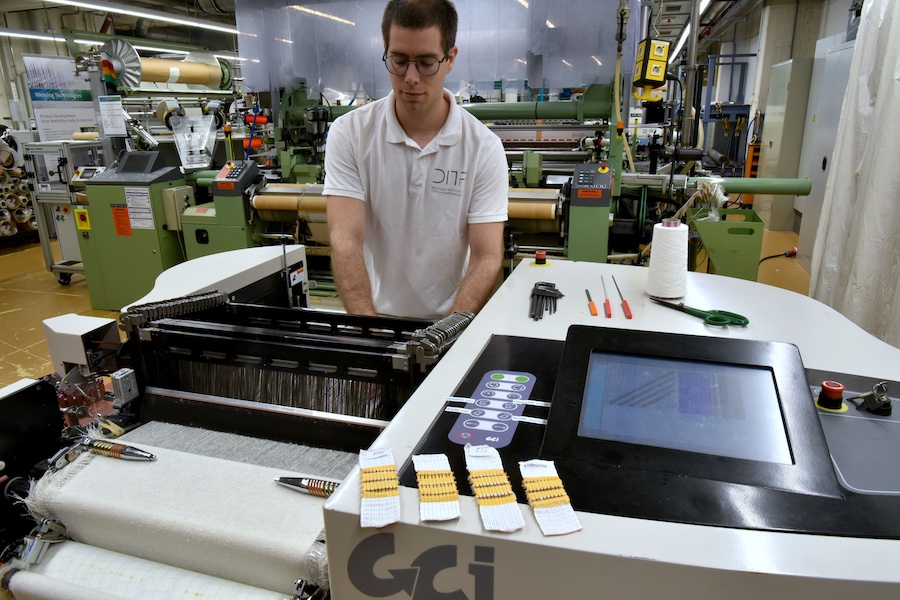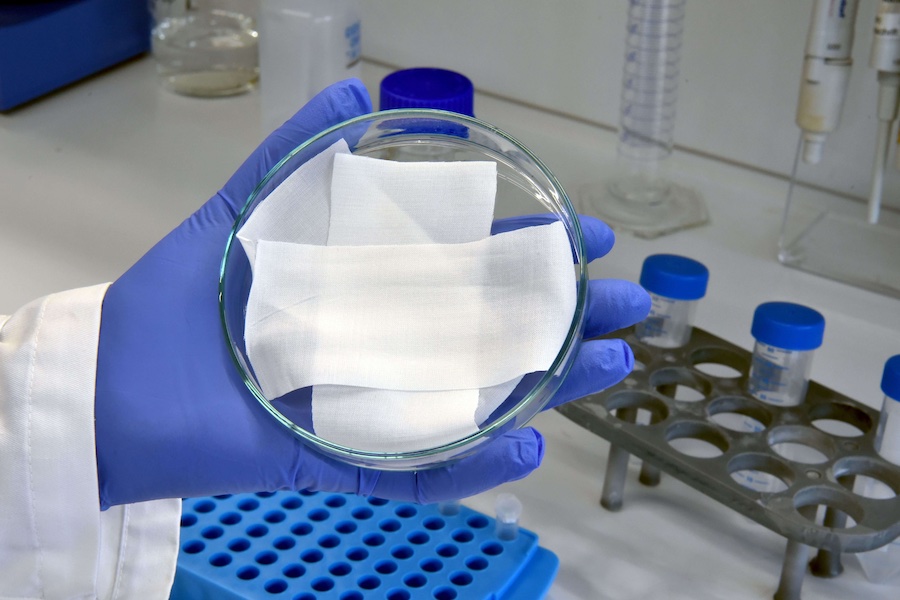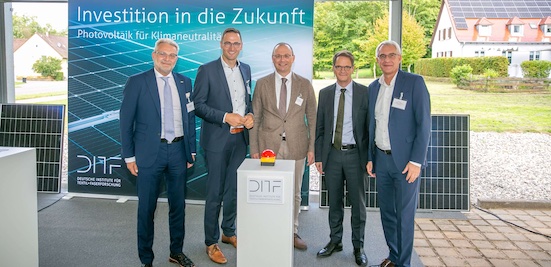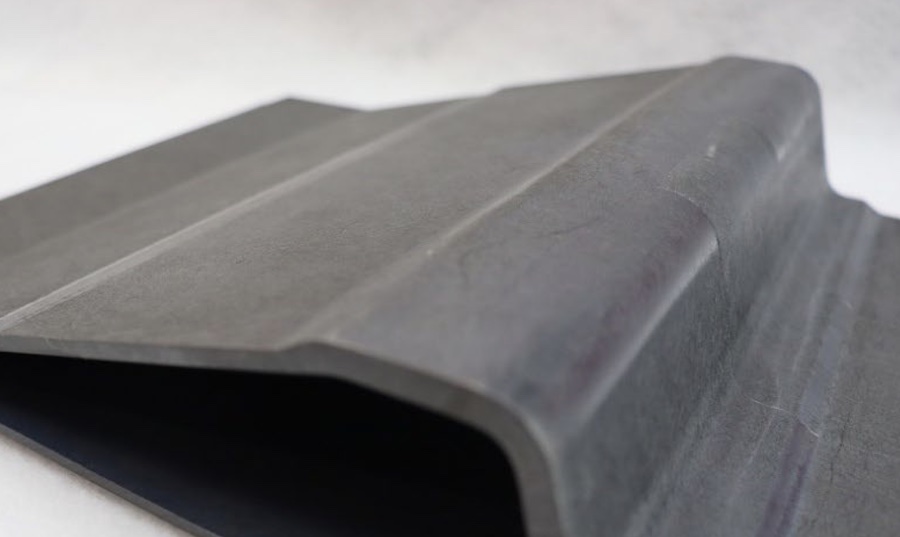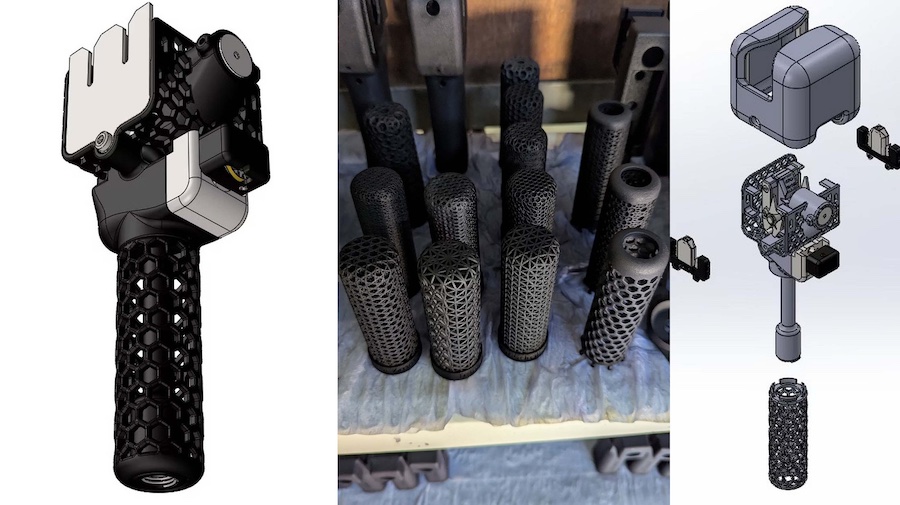#Composites
JEC Composites Innovation Award 2025 for CO2-negative house walls in lightweight construction
Each year, the JEC Composites Innovation Awards recognize innovative and creative projects that demonstrate the full potential of composite materials. With the help of a development team from 12 companies and research institutions, TechnoCarbon Technologies GbR successfully submitted its innovative DACCUSS building element for house walls made of Carbon Fiber Stone.
Carbon Fiber Stone is a building material made of natural rocks and bio-based carbon fibers. It serves as an environmentally friendly replacement for CO2-intensive concrete in the construction industry. While conventional concrete walls release large amounts of CO2 during production, the DACCUS building element binds 59 kg of CO2 per square meter and therefore has a negative carbon footprint. In addition, the panels weigh only one-third of equivalent reinforced concrete house walls.
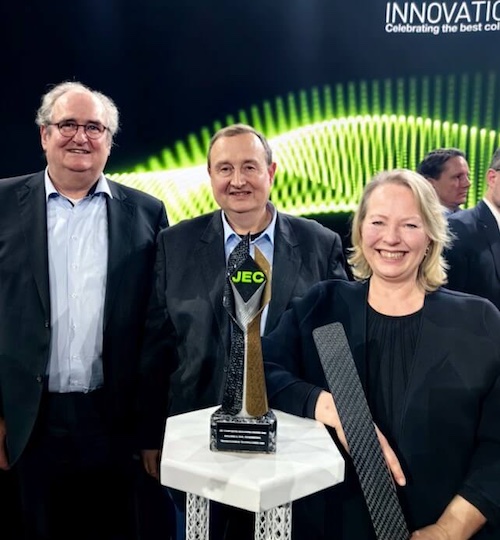
Each DACCUS element consists of several high-strength natural stone slabs made from magmatic rock. Inside the construction are bio-based carbon fibers, which the DITF Denkendorf is working intensively to develop. They form the stiffening element that enables the high strength of the construction elements and, in turn, contribute to the negative CO2 balance. The layer between the natural rock slabs is filled with carbon-negative biochar granulate, which is responsible for the insulation of the building element. The mineral sawdust from the cut rock slabs can be used as a soil amendment and serves as a binder for free CO2 from the atmosphere. The strict focus on processes and materials that actively bind CO2 has made it possible to produce a building material with a negative CO2 balance.
Partners: Deutsche Institute für Textil- und Faserforschung Denkendorf (DITF), TechnoCarbon Technologies GbR, Universität Hamburg (UHH), Labor für Stahl- und Leichtmetallbau GmbH (LSL), AHP GmbH & Co. KG, Technische Universität München (TUM), GVU mbH, Silicon Kingdom Holding Ltd., Gallehr Sustainable Risk Management GmbH, Peer Technologies GmbH & Co. KG, GREIN srl, Convoris Group GmbH, RecyCoal GmbH, ITA, Institut für Textiltechnik der RWTH Aachen, LISD GmbH.




